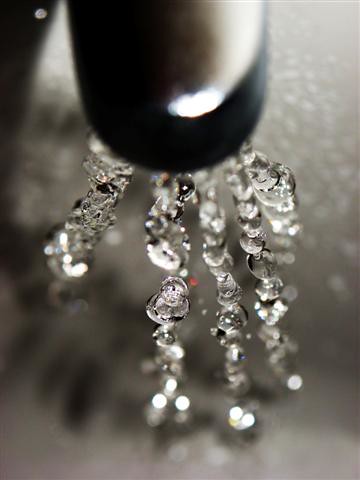
Tap Water in a Developed Country
When you compare tap water across America to tap water in undeveloped countries all over the world, it’s hard to consider our tap water “bad.” In some other countries, it truly is bad to drink the water, and contaminated drinking water can kill millions of people every year. When you compare our tap water to water sources elsewhere, you see an example of what unsafe drinking water actually is. In those countries, they need bottled or filtrated water. Here, we don’t necessarily need bottled water, but we seem to prefer it and consider it safer and healthier. Is it really?
Bottled versus Tap
Bottled water advertisements and labels tell us that the water is completely purified, and they make us think the water they bottle comes from the most natural of places, like mountain springs and glaciers. The truth is that bottled water often comes from the same places as tap water does; the only difference is that it’s filtered a few more times. The extra filtration doesn’t necessarily mean it’s better. In some lab studies, tap water was found to have no higher concentration of bacteria or germs than bottled. And for people who think bottled water just tastes better than tap – in many, many blind studies, people have consistently been unable to differentiate tap water from bottled.
Chemicals in Tap Water
Most people think that tap water is bad for you because it contains a lot of chemicals. They’re partially correct. Tap water does contain chemicals, but it doesn’t contain “a lot” of chemicals. Chemicals like chlorine and fluoride are used to treat the water and kill any germs that may exist in it before it’s delivered to your home. In large amounts, chlorine is toxic. However, the levels of chemicals like chlorine that are found in tap water are not enough to harm you. Another concern is lead, which sometimes enters tap water when pipes are corroding. Lead is dangerous, but again significant amounts are not present in tap water.
The Verdict
In the end, tap water is not bad for you. Water is good for you, no matter what. However, there have been some rare cases of tap water contamination. If you’re worried, you can perform a home test of chemicals in your drinking water. Alternatively, you can purchase a carbon filtration system that will purify your tap water and eliminate your need to buy bottled water ever again.
Chelsea Smith is a Health and Nutrition major at the University of Texas who loves to write about her passions and interests. She recently did an article on the benefits and nutrition of nuts.
Photo Credit: Tim Bayliss Photography